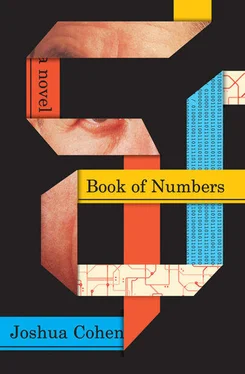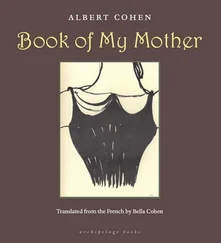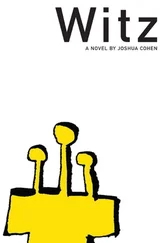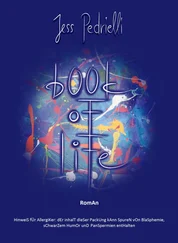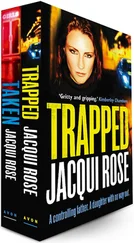://
There’s something different about writing by hand again (something rebooting, refreshing, restoring, restorative), using pen and notebook, for the first time since I’m not sure, school. Writing with the whole hand, writing with the entirety of my handedness, not just with the fingers. Get a grip, a hold, let the punctuation loosen, let the ligatures slack, shed the remanence, degauss the ghost, release, breathe. Do whatever.
Writing by hand, it’s not just the foreign words that get italics, every word gets italics. Capitalization becomes a negligence. Letters in the middle of words are capitAlized. Or at the end, like seX. Bold is pressure exerted. Underline, a bump.
The pen — not a dippable nib but a disposable ballpoint. Ink through a tube like marrow in the bones, which lubricates a ball as it’s rolled over a page — I can’t help but be reminded of heads, of decapitation. Cut off my own, dripping its fresh indigo, and roll me over all that blankness outside. Me, rolling over the fields, punctuating with my nose.
The paper — like the traintracks laid straight out below me, ruling Europe, lining mind — I’m wondering, what year did lined or ruled paper first appear? And which is it — lined or ruled? German goes for Liniert. In school the marble swirl notebooks were Wide-Ruled, like a Homeric epithet. My gut’s telling me that this longitude first emerged before the war — but which war? But then the gut gets all unsettled again and says — maybe the 1840s? That feels more like it. 1642, in London or Paris. Venice. Amsterdam. Make it up. Feel more. At the time, the writers must’ve been thinking, just another pointless novelty! The grid’s too cramping! Too controlling! Once again, technology’s depriving our thoughts of freedom! (I haven’t used an exclamation in a while! Feels great!) Bear with me hairs, plant fibers, horse hooves! Bear me nut galls and berries, resins, tannins!
Computers keep total records, but not of effort, and the pages inked out by their printers leave none. Screens preserve no blemishes or failures. Screens preserve nothing human. Save in the fossiliferous prints left behind by a touch.
But a page — only a page can register the sorrows of the crossings, bad word choice, good word choice gone bad, the gradual dulling of pencil lead, which is graphite. A draft by hand resembles the mechanism of computational processing. A semiconductor, an integrated circuit or in plaintxt, a chip. Think of the paper as the silicon substrate, and think of the multicolored scribble piled atop as having been fabricated in layers, in strata dug from the earth — it’s like an archaeology in which the artifact you’re seeking is the earth itself, which is mining, I guess, like drilling for mineral deposits, metals, copper, aluminum, gold, silver, nickel, tin, zinc.
On second thought, on 40th thought, forget the analogy. Rub it out, don’t rub it. Semiconductor levels (“the wafers”) are smaller than particles of dust, semiparticulate small, and if even one of them from the solder on down to the boarded substrate becomes compromised in any way, at any point in the fabrication, the entire circuit’s fucked, and the computer might be too, fucked integrally. That’s why they’re manufactured in spotlessly white compartments kept airlocked and ionized, seismically stabilized, fascistically regulated for temperature and humidity, and free of contact with contaminants like sweat and dust (“the human”). That’s why they’re increasingly being manufactured by robots. Just like prose is.
A notebook is the only place you can write about shit like this and not give a shit, like this. Cheap and tattered, a forgiving space, dizzyingly spiralbound, coiled helical.
\
Enough tetricity — I left Frankfurt, but never went back to Berlin.
You could line a triangle, you could triangulate, among Berlin, Frankfurt, and where I am, or was, moving. 10:18 with no timechange.
At least the windows always change. The tracks are always on time.
Switch trains at Nürnberg, 12:30. Just across the platform.
Field, house, church, house, field — and they’ve stopped checking passports when you cross the Inn (the river) (tributary of the Danube). In a pleather banquette, passing cows — cudding huddled stupey cows grazing at grass fenced just off the trackbed — meatcows the color of rancid butter, fenced separately from milkcows whose piebald inkblots remind me of roundbordered countries I’d rather be in.
Memory, that roundbordered country.
Vienna, terminus was the Westbahnhof, which I’d never been through before — on my last visit to Vienna, to research my book, 12 years ago now, I’d driven in from the east, taking the route of my mother’s war through what’d only recently been called Czechoslovakia, from Poland. I admit, I was momentarily perplexed: I’d expected an Austro-Hungarian railroad shed of clichéd fin de siècle grandeur, not this stagnant dingy penal colony advertising telecoms, art exhibitions, operas, and compgenerated architectural renderings of the unfinished Hauptbahnhof — slated to replace this facility in a ludicrously futuristic 2014—gummed with dotmatrix printouts of the take a tab variety.
I took a tab — no decent hostel was ever very far from trains. The city was turning its back on the sun and getting slapped with darkness.
At the hostel I was assigned a drywall cell fitted with foldout bunks that every time I counted them I got a different sum, but at least they were empty.
And to think — on my last visit I’d stayed at the goddamned Bristol. On my mother’s dime, but still. The Bristol. Only to sink to this.
Don’t think.
Read.
I fell asleep but at some point was woken by the nightmares — Dutch and some Gabonaise, and the former were saffronrobed backpacker Christian hippie maybe gay but maybe not gyrovagues, while the latter might’ve been involved in the logging industry and crashed around our cell like drunken trees, and the drywall was wet from the stalled bathrooms above and the bathrooms were showers too or rather just total wetrooms each with a sprinkler system showerhead above a rank Turkish squat toilet that slanted toward a drain.
But I didn’t mind — I’m not letting myself mind even the blanketlessness, the starchy sheet that required a deposit or the towel that had to be renewed daily, no exceptions and no discounts for extended stays, because privacy had become loneliness again (nothing to do but submit to conditions if the cost of privacy becomes loneliness) — except, the no smoking policy bothered (always going up and down).
\
A quarter moon after the looting, [PFC. CHRISTOPHER] Bringdom’s unit was assigned to secure the Museum and monitor its cleanup. They had to make sure its fabled collection sustained no further losses. Bringdom found it funny to be soldiering among all these Arab men doing what was supposed to be women’s work, all these misogynistic Arab men who seemed not to mind doing it. Sure, men were good for hauling gear, or those priceless hunks of busted Mesopotamian vases, but the Army had convinced him that men were pretty damn bad at sweeping and mopping.
Bringdom’s patrol brought him up to a large gallery with a small dune of glass on the floor. He broke away to kick at the sharp jagged shards, scattering them into reds and whites and blues, depending on the light. He was awestruck, but also confused. No windows had blown here. All the glass above was intact. Bringdom bent over his rifle and scooped a handful of the fragments into his flakvest pocket.
Читать дальше
